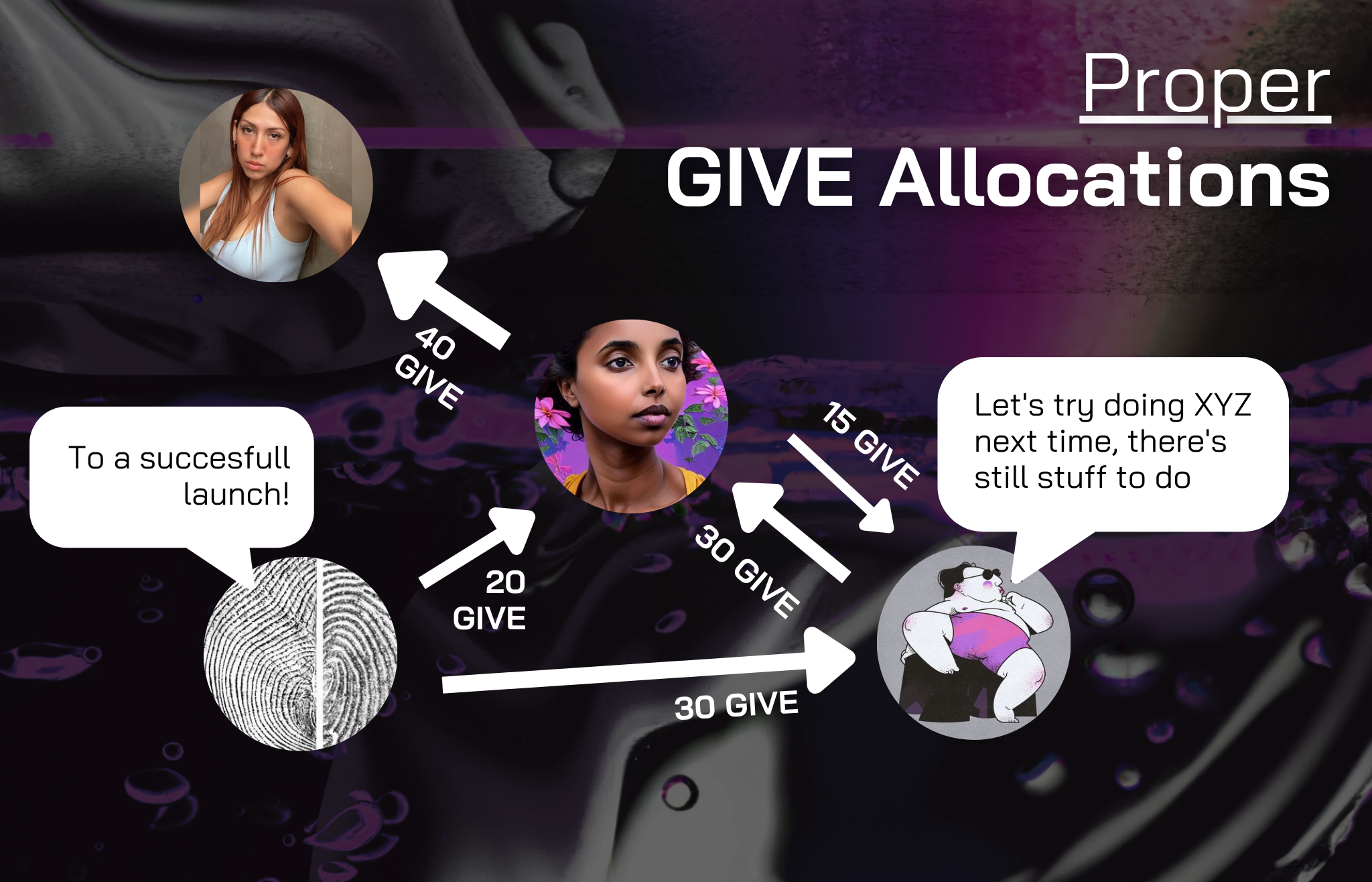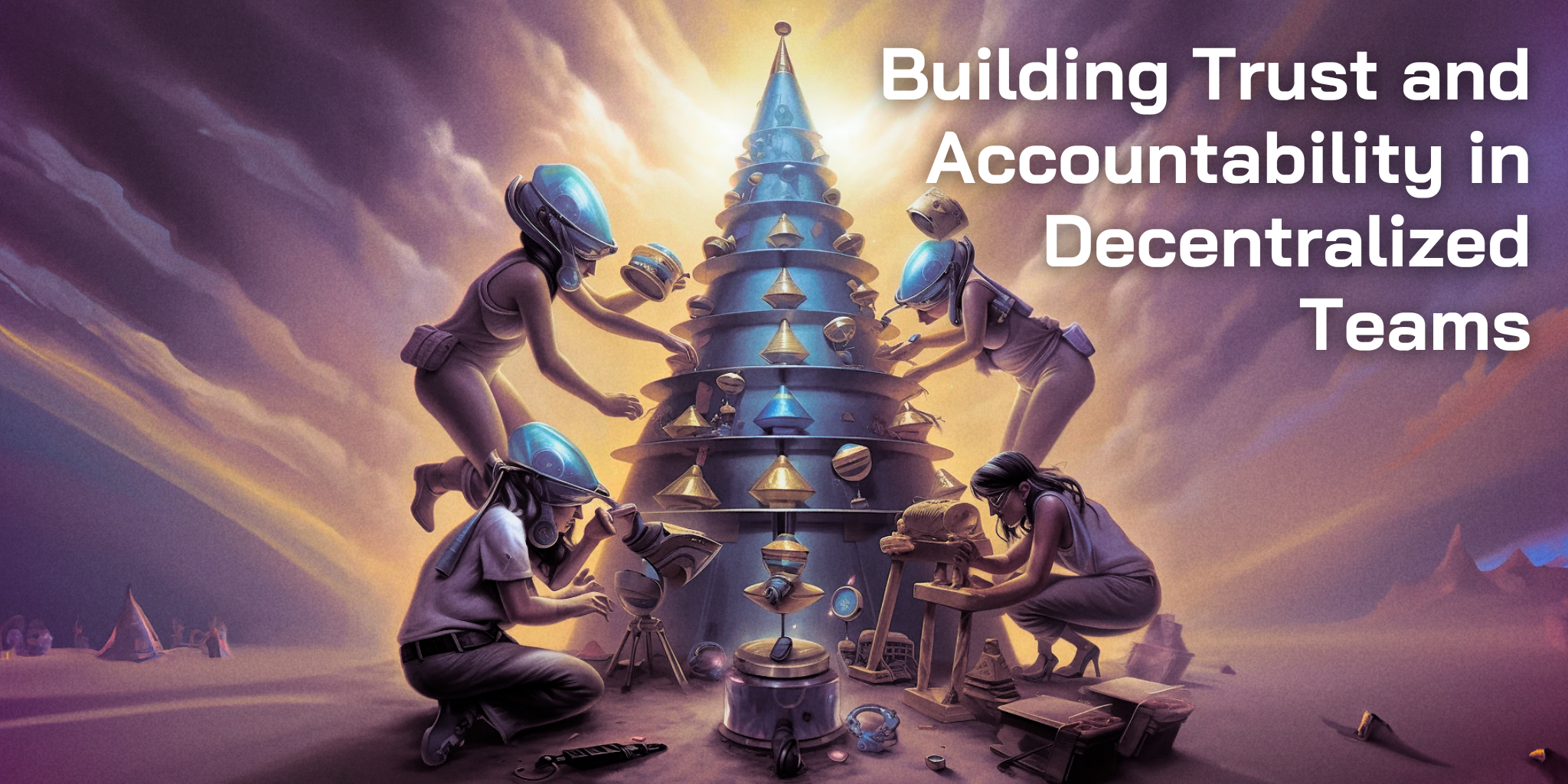DAOs have been seen as a new way of working together on exciting projects you wouldn't normally be able to join. But this way of looking at them has yet to prove its actual use cases when translated into the way companies work in the “real world”. It's still not clear how this concept can fit into the way traditional companies, like LLCs and C-corps, operate.
What if we focused more on improving teamwork and keeping everyone's goals in line, without completely changing how companies are organized? DAOs could be adapted to work alongside the businesses we're familiar with, helping collaborators, or employees, grow professionally.
By viewing DAOs as a tool, rather than just a way to organize a project, the process of "tokenizing" work and keeping a permanent record of your accomplishments could bring value to any organization.
So, thinking along these lines, let’s dive deeper into how web3 could bring on a new paradigm for reputation building, as well as improving your craft, no matter your trade
The Value of Feedback
The social media boom in the 2010s showed us how companies that quickly adapt and learn from every challenge along the way can become market leaders much faster than those who stick to a planned strategy without questioning it until quarterly reviews come in.
Having witnessed that, it’s kind of weird how most web3 projects are expected to have fully fledged roadmaps, with a 5+ year set path, before even launching to the public. This mindset of setting the path from the get-go has come back to bite us on multiple occasions. However, there are still only a few Agile DAOs out there that implement this approach formally rather than improvising at every turn.
To make DAOs agile in the right way, we need to identify the common threads that we could pull on to start experimenting intentionally and with the right approaches, and the tools to make this happen should be streamlined and on-chain. Coordinape is a standout project in this area, as it enables decentralized teams to have important discussions about their values, intended impact, and resource allocation for innovation.

These conversations are the crucial starting point for a more organized way of experimenting and improving with each attempt within web3 projects, without sacrificing the core principles of decentralization and open access that many of these projects aim to embody. Coordinape's vouching-based allocation system ensures that the contributions come from real individuals rather than sybils, enhancing trust in the team's decision-making process.
Finding these tokenized contribution systems is particularly valuable in the Web3 space, where decentralized coordination is becoming increasingly important. Distributing the load of these feedback systems can help teams avoid the drawbacks of the traditional ways of running experiments. You don’t have to worry about single points of failure, or people’s voices not being heard.
The last piece of the puzzle is to create use cases that align the outcomes with the objectives. We must start doing our homework and provide actionable feedback to our DAO teammates. By doing so, we can foster an environment where individuals can grow professionally, and the organization can thrive by adapting to the ever-changing landscape of the digital world. Through constant feedback and agile methodologies, DAOs can unlock their full potential and redefine the way we work and collaborate in the web3 era.
The Importance of a Reputation Graph for DAOs
How much do you invest in innovation? What quick solution worked best? Have you tested your platform?
Most DAOs wouldn’t be able to reply to this question today, without resorting to vague comments about how true decentralization is messy, or chaotic even.
The fact is, decentralizing work doesn't help everyday people unless they can build on top of their contributions, show their progress, highlight projects they've supported, and use past compensation to negotiate future work.
A reputation or labor graph isn't just for tracking project metrics; it's the key to your contributors' growing on-chain portfolio, helping them discover their strengths and pinpoint their most successful efforts.
Referring back to Coordinape, this platform allows decentralized teams to recognize and reward the most valuable contributors to a DAO's objectives. It's not just about giving more tokens to your closest colleagues. To improve and track progress, DAOs should encourage honest feedback and archive every GIVE circle, while constantly comparing them to past records to make sure power (and compensation) doesn’t stagnate.
Thankfully, Coordinape's team is aware of this potential, and plans to expand the benefits of participating in an allocation circle on-chain. This upgrade will unlock the potential of these end-of-season moments. But it all begins with taking the information behind each token allocation seriously.
A Transitional Cornerstone
I’ve always thought DAO Operators are just the stepping stone from middle management to truly decentralized workers, the clunky stage that steers us into this new paradigm once DAOs are ready to handle a decentralized workforce.
We need them, but that won’t be the case forever, at least ideally. Whenever we figure out how to allow contributors to hop from job to job while keeping their credentials and successes as they move projects, the need for full-time professionals set on a single task will pretty much become a logistics issue, rather than a foundational one.
Of course, we’re still a long way from that, but the baby steps are being taken as we speak. You may think there’s no other way to have a project be consistently effective without someone keeping tabs on its every metrics uptick, I’d point you towards the successes of projects like Metalabel and Gitcoin as an example of this distributed care being done well.
The leadership torch is meant to be passed on, whenever someone stays in a position of power for longer than they should, projects and people suffer as a result. Especially when we’re talking about a business model that’s still being explored and benefits from many perspectives pushing the same mission in several directions. Every shortcoming of our current DAO models has been a matter of ego taking over where clear discussion should be in place.
Reputation and labor graphs are a step in the right direction, but the main obstacle we should address in order for them to reach their full effect is in allowing the feedback and experimentation they open up to become a central part of the DAO’s operations, rather than a performance for appearance’s sake.
Conclusion
It’s almost impossible to have efficiency and iteration in decentralized teams without clearly showcasing and rewarding the people who care most, and also keeping whomever participates in the feedback process accountable to the DAO’s objectives.
Coordinape is just one of many tools that can help people create the track record needed for success in web3. However, it stands out for integrating an individual’s growth as a professional into the core of its platform when used correctly.
That’s why we consider it an important piece of the puzzle. Without accountability, without trust, anyone working in our decentralized corner of the internet will be subject to the ebbs and flows of the community’s favoritism and bias for “moving fast and breaking stuff”, without realizing the crucial step of figuring out why the stuff broke is the most important one.
